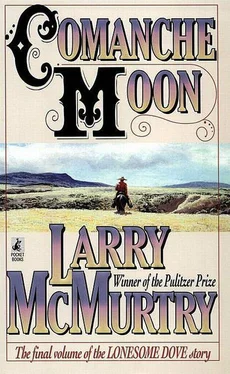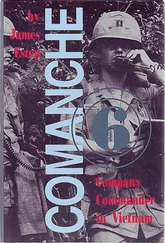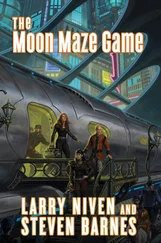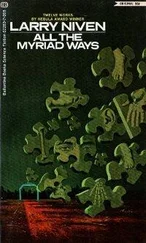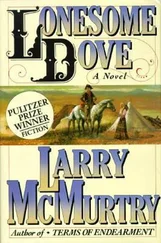Where'd they all go?" "You had better just fill your belly with that fresh horsemeat," Famous Shoes said, with an amused look. "The antelope are over by the Purgatory River right now. There is good sweet grass along the Purgatory River this year." "I don't know why this grass wouldn't be sweet enough for them," Call said. "I know it's icy right now, but this ice will melt in a day or two." Famous Shoes was amused by the young ranger's insistence. It was not the young man's place to question the antelope. Antelope were free to seek the grass they preferred--they did not have to live by the Palo Duro, where the grass was known to be bitter, just because some Texans liked antelope meat better than horsemeat. It was typical of the whites, though. Seventeen horses were dead and there was plenty of tasty meat left on their carcasses. Those horses would never eat grass again, sweet or bitter; only the three stallions Kicking Wolf had kept would know the flavor of grass again. Yet, here was this young man, Call, expecting to find antelope standing around waiting to be shot. Only buffalo were peculiar enough to stand around waiting to be shot by the white men, which was why the numbers of buffalo were declining. There were plenty of antelope, though-- they lived wherever the grass was sweetest, along the Purgatory or the Canadian or the Washita or the Rio Pecos.
"I don't think we will see any antelope today," Famous Shoes said--and then he left. The rangers had galloped away to the west, but Famous Shoes turned north. It vexed Call a little. The man was their scout, yet he never seemed to travel in the same direction as the troop.
"I'd be curious to know where you're heading," he asked, trotting after the scout, in a polite tone. After all, the man hadn't really done anything wrong--he just did things that seemed peculiar.
Famous Shoes had been moving in a light trot when Call followed him and asked him the question. He looked up at Call, but he didn't slow his motion.
"I'm going to see my grandmother," he said.
"She lives up on the Washita with one of my sisters. I guess they are still there, if they haven't moved." "I see," Call said. He felt foolish for having asked.
"My grandmother is old," Famous Shoes said.
"She may want to tell me a few more stories before she dies." "Well, then, that's fine," Call said, but Famous Shoes didn't hear him. He had begun to sing a little song, as he trotted north.
Famous Shoes' voice was soft, and the wind still keened. Call heard only a snatch or two of the song, before Famous Shoes was so far away that the song was lost in the wind.
A little perplexed, feeling that he might somehow have been out of order, Call turned his horse and began to lope west, after the troop. The tracks of Hector, the Buffalo Horse, were as easy to follow as a road. He wondered, as he loped over the cold plains, what made Indians so much like women. The way Famous Shoes made him feel, when he asked a question, was not unlike how Clara Forsythe made him feel, when he ventured into her store. With both the Indian and the women he was always left with the feeling that, without meaning to, he had made some kind of mistake.
Before he could worry the matter much more he saw a horseman approaching, back along the trail Hector had made. For a moment, he was fearful enough to heft his rifle--out on the plains, a Comanche could pop out at you at any time. Maybe one had got between him and the troop and was planning to cut him off.
Then, a moment later, he saw that it was only Gus, coming hell for leather back along the sleety trail.
"Why'd you lag, Woodrow? We thought you'd been ambushed," Gus said, a little out of breath from his rapid ride.
"Why no, I was just talking to Famous Shoes," Call said. "You didn't need to lather your horse." "We heard that whooping last night--y could have been ambushed," Augustus reminded him.
"I ain't ambushed, let's go," Call said.
"The boys will eat all the breakfast if we don't hurry." Augustus was annoyed. His friend could at least have thanked him--af all, he had put his own life at risk, coming back alone to look for him.
But then, the fact was, Woodrow Call just wasn't the thanking kind.
The morning Inez Scull first called Jake Spoon into her bedroom, she was sitting on a blue velvet stool. The bedroom was in the Sculls' fine brick mansion on Shoal Creek, the first brick house in Austin, the rangers had been told. Jake had only been with the rangers three months at the time, working mainly as a kind of orderly for Captain Scull. His chief task was to groom Hector, and get him saddled when the Captain required him. Now and again Captain Scull would dispatch Jake to run an errand for Madame Scull--?Madame Scull" was how she preferred to be addressed. Usually the errand would consist of picking up packages for her at one of the more prominent stores. Jake had come to Texas with a group of ragged settlers from Kansas; he had never seen such buying as the Sculls routinely indulged in. The Captain was always ordering new guns, or saddlery, or hats or gloves or spyglasses. The big dining room table in the Scull mansion was always littered with catalogues of all descriptions--catalogues of combs or dresses or other frippery for Madame Scull, or knives or fine shotguns or microscopes or other gadgets for the Captain.
The house even boasted a barometer, a thing Jake had never heard of, and also a brass ship's clock at the head of the stairs, a clock that sounded bells every hour and half hour.
Jake had never been, or expected to be, in a fine lady's bedroom when the kitchen girl, Felice, a young high yellow girl he had taken a bit of a fancy to, came outside and told him that the lady of the house wanted to see him upstairs. Jake was a little nervous, as he went up the stairs. Madame Scull and the Captain were often out of temper with one another, and were not quiet in their expressions of rage or discontent. More than once, according to Felice, the Captain had taken a bullwhip to his lady, and, more than once, she had taken the same bullwhip to him--not to mention quirts, buggy whips, or anything else that lay to hand. At other times, they screamed wild curses at one another and fought with their fists, like two men. Some of the Mexican servants were so alarmed by the goings-on that they thought the devil lived in the house--a few of them fled in the night and didn't stop until they were across the Rio Grande, more than two hundred and fifty miles away.
Still, both the Captain and Madame Scull had been very nice to Jake. Madame Scull had even, one day, complimented him on his curly hair.
"Why, Jake, those curls will soon be winning you many female hearts," she said to him one morning, when he was carrying out a package she wanted sent off.
The men, Augustus McCrae particularly, scoffed at Jake for accepting soft work at the Captain's house, when he should have been out riding on Indian patrols. But Jake had no fondness for horses, and, besides, had a mighty fear of scalping. He was but seventeen, and considered that he had time enough to learn about Indian fighting. If, as some predicted, the Indians were whipped forever, before he got to fight them, it would not be a loss that grieved him much. There would always be Mexican bandits to engage the rangers--Jake supposed he could get all the fighting he wanted along the border, and soon enough.
When Madame Scull called him upstairs he supposed it was just to carry out another package; the worst it was likely to entail was hanging a drape--Madame Scull was always getting rid of drapes and replacing them with other drapes. She was always shifting the furniture too, much to Captain Scull's vexation. Once he had come home from a dusty scout and started to plop down in his favorite chair, with one of the scientific books he loved to pore over, only to discover that his favorite chair was no longer in its spot.
Читать дальше
